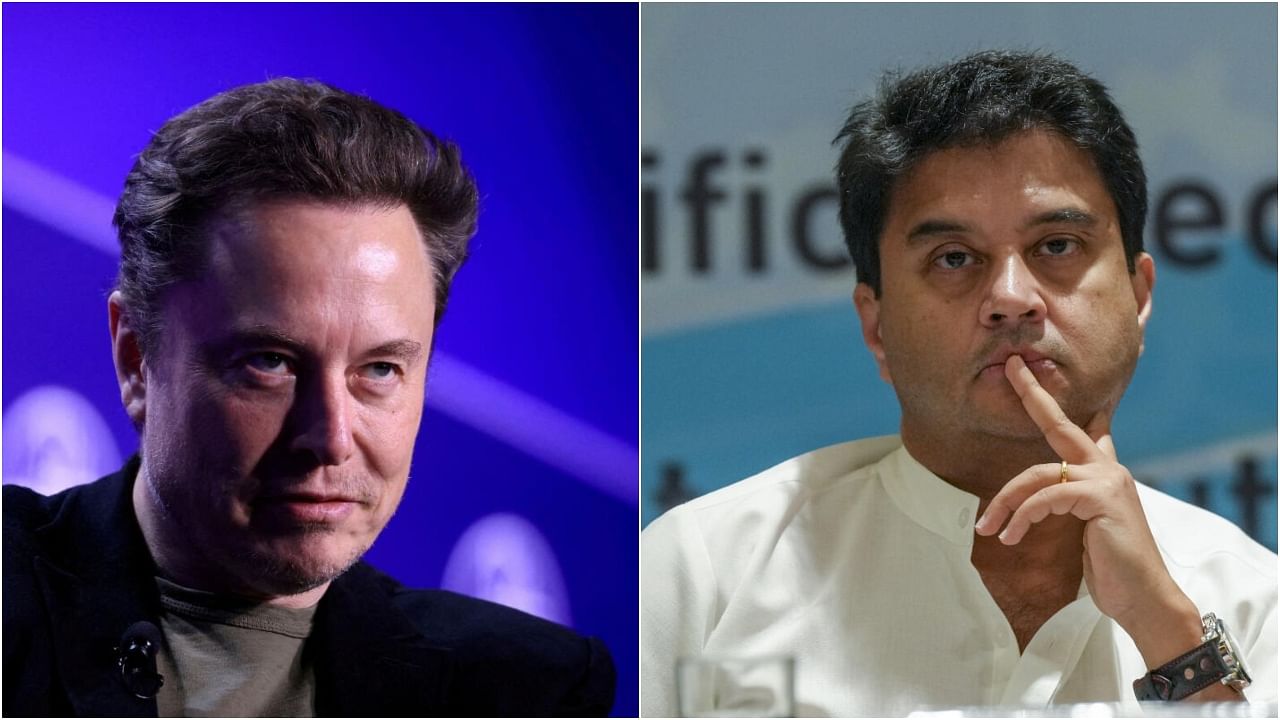
Elon Musk; Jyotiraditya Scindia (L-R).
Credit: Reuters, PTI Photos
New Delhi: The central government is ready to grant a licence to billionaire Elon Musk’s satellite internet service provider Starlink to operate in India if it complies with regulatory requirements and addresses concerns related to security, Union Minister for Communications Jyotiraditya Scindia on Tuesday.
“They (Starlink) have to comply with all the rules to get the licence. You have to look at it from a security perspective as well,” Scindia told reporters.
Starlink, which is a wholly-owned subsidiary of SpaceX, has been vying for a licence to operate in India for the past couple of years. It applied for Global Mobile Personal Communication by Satellite Services (GMPCS) licence in October 2022, and had also sought authorisation from the Indian National Space Promotion and Authorisation Centre (IN-SPACe), the country’s space regulator.
Replying to a question regarding the status of Starlink licence application, Scindia said, “They are in process of doing it. Once all requirements are met they will get the licence.”
The minister’s comment comes amid growing debate over the modalities for pricing and allocation of satellite spectrum. Domestic telecom operators Mukesh Ambani-led Reliance Jio and Sunil Mittal-led Bharti Airtel have been pitching for auctions of satellite spectrum in line with the terrestrial networks, while global operators argue that satellite spectrum is a shared resource so it shouldn’t be auctioned.
Starlink and Amazon’s Project Kuiper are the leading global satellite based communications service providers. These American firms use their low-earth orbit satellites to provide high-speed broadband services.
So far, the centre has issued licence to Bharti Group-backed OneWeb and Jio Satellite Communications for satellite broadband services. However, satellite based internet services have not yet started in India.
According to the minister, the services will start based on the recommendations of the Telecom Regulatory Authority of India (TRAI), which is consulting different stakeholders and is likely to announce rules for satellite spectrum services by the end of this year.
While the telecom operator is yet to announce the norms, Scindia has indicated that the government would opt for allocation of satellite spectrum instead of auctioning.
Donald Trump’s victory in the US presidential election has boosted hopes of a favourable policy for Musk-led firms in India. Trump is well known for his proximity to Musk and Prime Minister Narendra Modi.
Speaking on other issues, Scindia said TRAI would enforce a number of new rules from April 2025 to monitor the quality of telecom services at the micro-level.
According to the minister, it will become mandatory for telcos to display maps of their 2G, 3G, 4G and 5G networks on their websites. Cell-level monitoring of key parameters like network availability and call drop rates will be done. Scindia said telecom companies would be penalised for non-compliance.